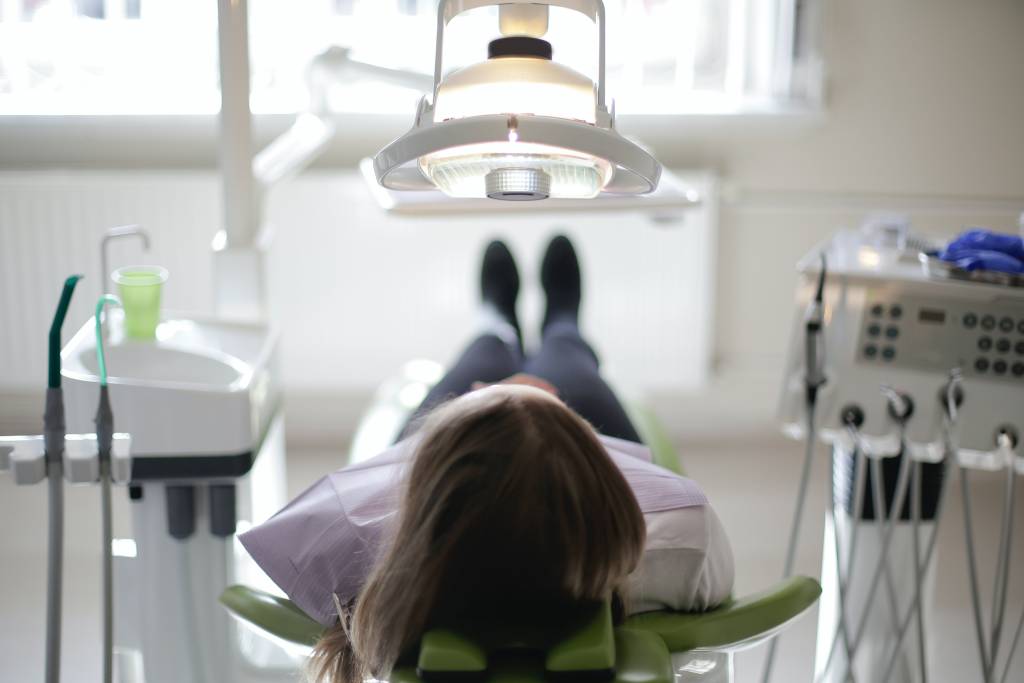Stress affects many areas of health but did you know it can have an effect on your oral health? For day two of Self-Care Week (Nov 16-22) Dr Sunny Sihra of SimplyTeeth tells us exactly what stress is doing to our oral health.
Order the latest Top Santé magazine here
1. Oral health is compromised by stress
 When we are under stress, are anxious or feel burnt out, it is usually because we are feeling stressed in our daily lives, either from work or family life. Because your mind is focussed on so many other things, you may find that your personal hygiene goes out the window, including your oral health hygiene.
When we are under stress, are anxious or feel burnt out, it is usually because we are feeling stressed in our daily lives, either from work or family life. Because your mind is focussed on so many other things, you may find that your personal hygiene goes out the window, including your oral health hygiene.
Many people who are busy find it hard to dedicate time to their oral health twice a day, skipping brushing, flossing or using mouthwash altogether. This can lead to many problems for your teeth down the line such as cavities, ulcers and gum problems. If you end up skipping brushing altogether, the plaque will build up and this will increase your chances of needing emergency dental work.
2. Stress could lead to gum disease
 Stress is known to negatively impact your immune system, which you need to be healthy and to fight against infection. If your immune system is compromised, you may be more likely to develop an oral infection or gum disease. Many studies have shown that people with emotional, mental, and financial issues are at a greater risk of developing gum disease.
Stress is known to negatively impact your immune system, which you need to be healthy and to fight against infection. If your immune system is compromised, you may be more likely to develop an oral infection or gum disease. Many studies have shown that people with emotional, mental, and financial issues are at a greater risk of developing gum disease.
3. Excess stress could lead to Bruxism

Stress can often cause people to grind or clench their teeth a lot more than usual. This can lead to a condition known as Bruxism, which essentially describes a person who clenches their teeth for prolonged periods of time as well as grinding them at night (also known as ‘sleep bruxism’).
Some other symptoms of Bruxism are tooth sensitivity, a lack of enamel on the tooth, soreness in the jaw and tight jaw muscles or loose/chipped teeth. As well as stress, alcohol consumption, smoking and too much caffeine may also increase your chances of developing Bruxism.
4. Stress leads to poor diet, which impacts oral health
 High levels of stress can lead to undernourishment, because people may be more likely to eat quick, unhealthy meals or snacks as opposed to cooking a healthy and nutritious meal.
High levels of stress can lead to undernourishment, because people may be more likely to eat quick, unhealthy meals or snacks as opposed to cooking a healthy and nutritious meal.
A poor diet can eventually lead to problems with the teeth, especially if the person is eating more sugary foods and drinks. This, alongside higher alcohol consumption and a lack of oral hygiene, will most likely bring on issues such as cavities and gum disease.
5. Stress can cause a dry mouth and sore lips
 If you are feeling particularly stressed, you may find that you have a dryer mouth than usual – just think back to a time you were giving a presentation or leading a team meeting at work! Many people with high powered jobs who feel stressed a lot of the time will suffer from this oral condition. Dry mouth causes a lack of saliva in your mouth, and saliva is super important: it has many oral benefits, such as washing away any food particles left in your teeth and gums.
If you are feeling particularly stressed, you may find that you have a dryer mouth than usual – just think back to a time you were giving a presentation or leading a team meeting at work! Many people with high powered jobs who feel stressed a lot of the time will suffer from this oral condition. Dry mouth causes a lack of saliva in your mouth, and saliva is super important: it has many oral benefits, such as washing away any food particles left in your teeth and gums.
Not only this, but the lips may also suffer from stress as many people bite or chew their lips leading them to become dry, cracked or thin. Dry or cracked lips may also be down to a lack of self-care, as many people who are feeling stressed may forget to apply lip balm or moisturiser.
Click here to find out how to improve your oral health today!







